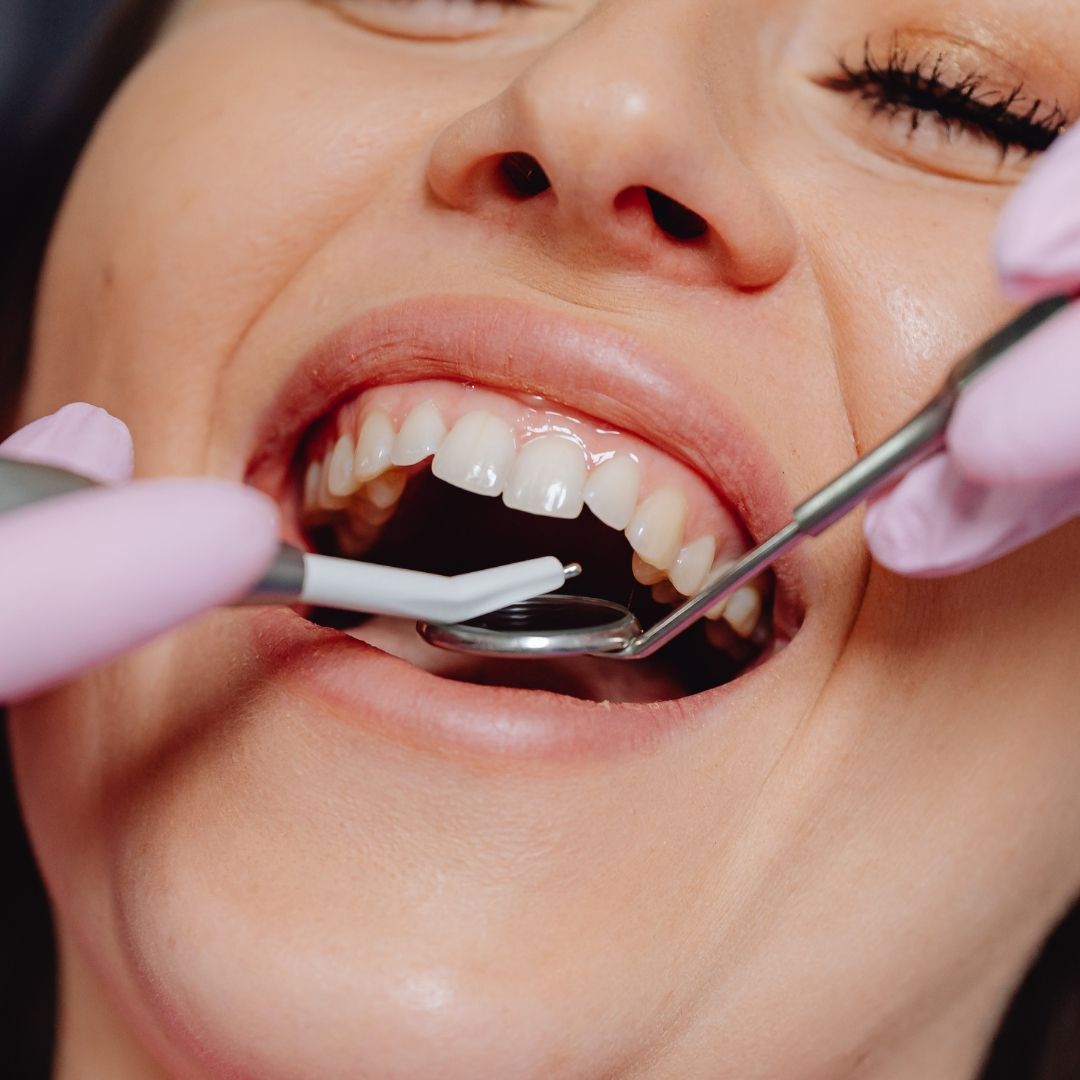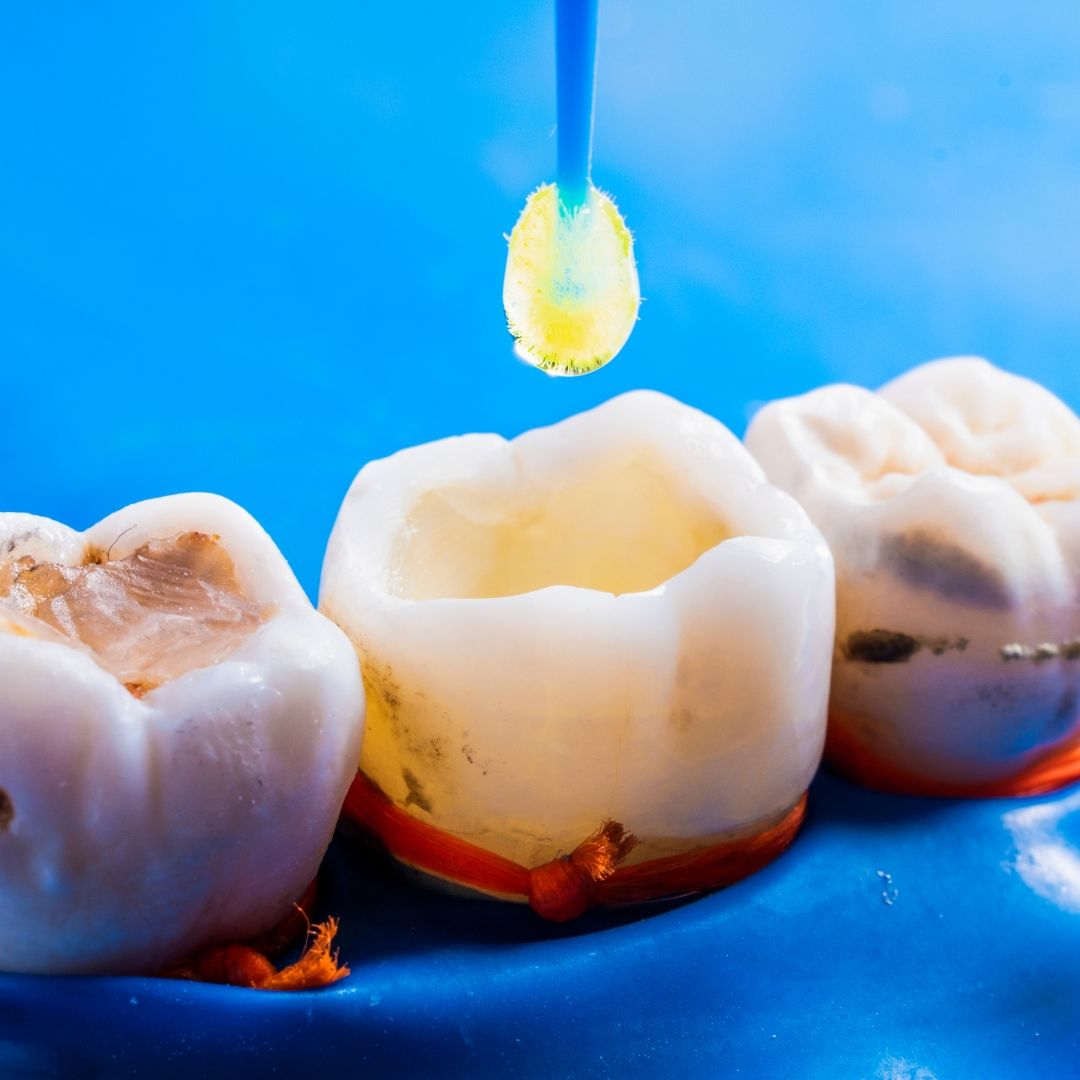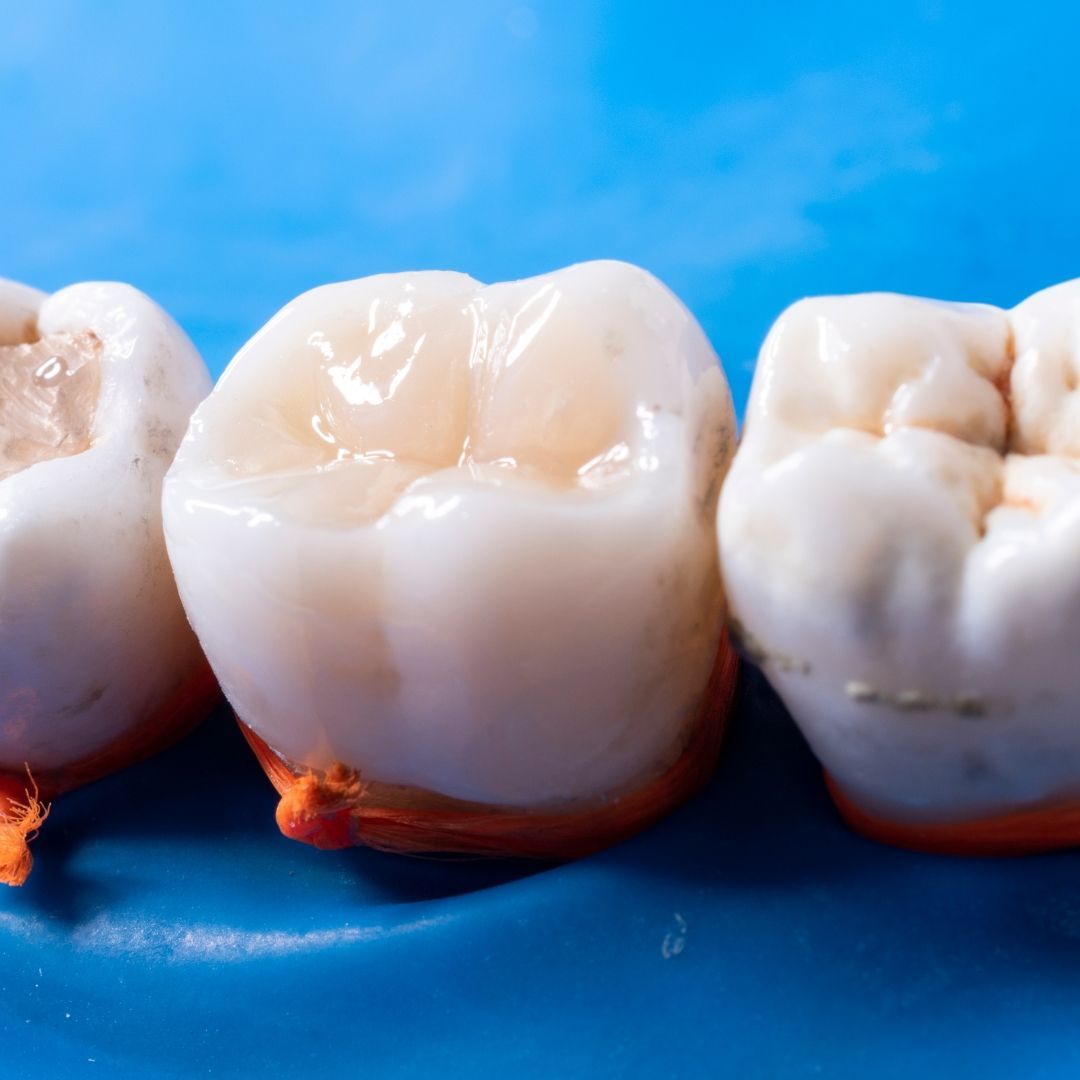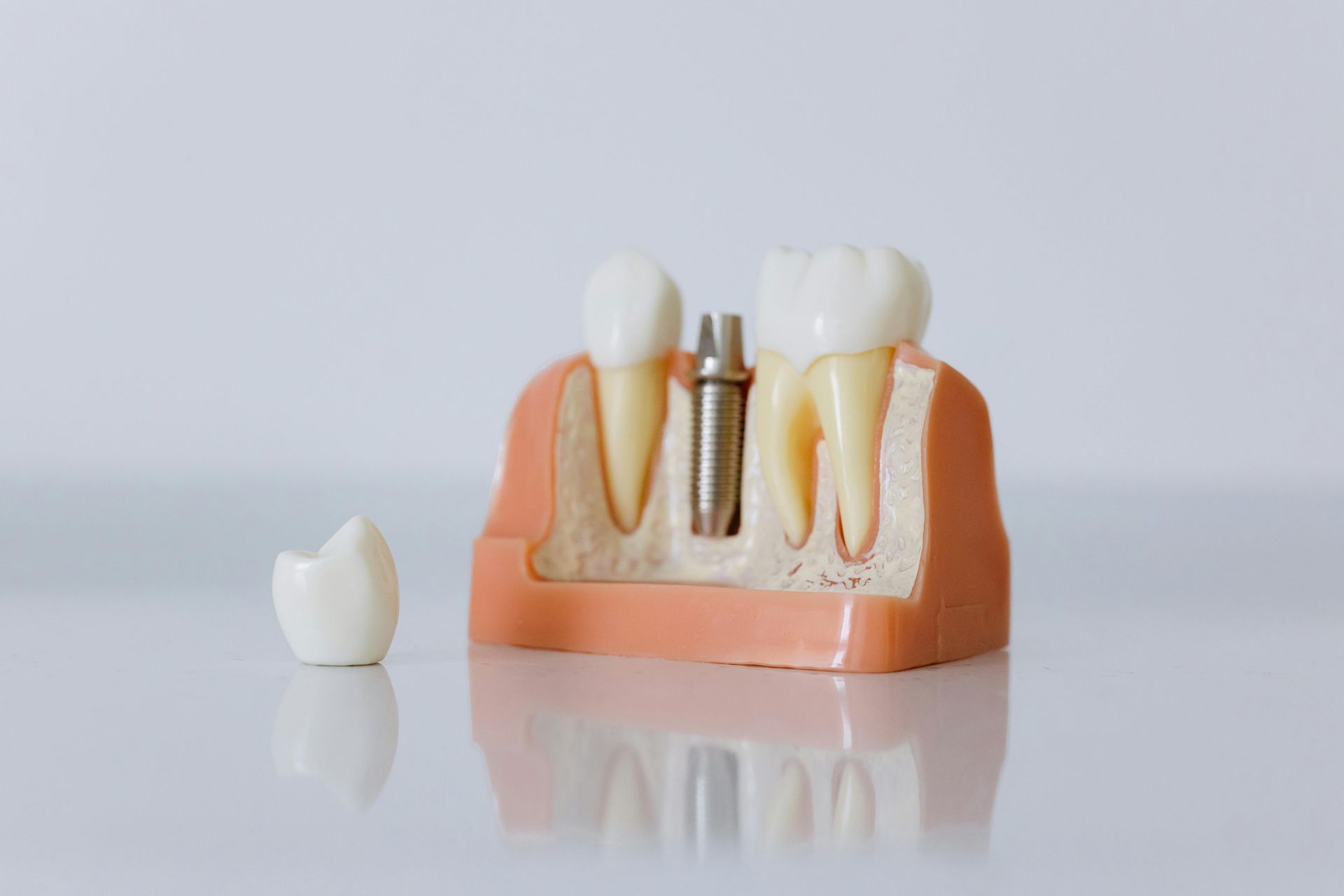
Tooth Fillings in London
Cavities or sensitive teeth? You’re not alone – many UK adults face similar issues, with millions needing fillings to restore their smiles. At our London dental practice, we make tooth fillings in London simple and stress-free, helping you leave with a confident smile.
Tooth Fillings in Ealing
Cavities or sensitive teeth? You’re not alone – many UK adults face similar issues, with millions needing fillings to restore their smiles. At our Ealing dental practice, we make tooth fillings in Ealing simple and stress-free, helping you leave with a confident smile.
Types of Fillings
Your Ealing dentist will choose the best filling material based on your needs, discussing all options beforehand. Factors include the cavity’s size, location, and your budget or aesthetic goals.
Composite Fillings
Composite fillings, also called white fillings, are popular for their natural, tooth-coloured look. They blend seamlessly with your teeth, making them ideal for visible areas. These fillings bond strongly to your tooth and are often used to replace chipped, stained, or leaky fillings. Our Ealing dentists colour-match them for a flawless finish.
What Are Tooth Fillings?
What to Expect During Your Visit
Aftercare & Healthy Habits
Tooth fillings are one of the most common and effective ways to repair damage caused by tooth decay. Whether you're dealing with sensitivity, discomfort, or visible holes, a filling restores your tooth’s structure and protects it from further damage.
Our tooth fillings in Ealing are carried out using gentle, modern techniques to ensure you feel relaxed from start to finish. We offer a range of materials—including natural-looking composite (white) fillings that blend seamlessly with your smile.
For example, Tom, a regular Ealing commuter, came in with sensitivity to cold drinks. A quick filling resolved the issue—and he left smiling (and enjoying iced coffee again).
What Are Tooth Fillings?


Filling appointments are simple and pain-free. Most treatments are completed in one visit, though some cases—like porcelain or gold fillings—may require a follow-up.
Here’s how your dentist in Ealing will carry out the treatment:
- We’ll begin with a gentle local anaesthetic to numb the area.
- Your dentist will carefully remove the decayed portion of your tooth.
- A durable filling material will be placed and shaped to restore function and comfort.
- We’ll polish the tooth and check your bite for a perfect fit.
Appointments usually take between 30 and 60 minutes. We’ll also explain your filling options in advance, so you feel informed and confident throughout.
What to Expect During Your Appointment


Aftercare & Ongoing Visits
After your treatment, you can return to daily activities almost immediately—but there are a few aftercare tips to keep in mind.
- Avoid chewing hard foods until the numbness wears off.
- If sensitivity occurs, it should ease within a few days.
- Maintain a strong brushing and flossing routine to protect the treated tooth.
Your dentist in Ealing may recommend a follow-up if the filling is large or close to the nerve. We'll also share personalised advice to help you prevent future cavities—because long-lasting oral health is all about prevention.
Regular check-ups, smart brushing habits, and limiting sugary snacks go a long way in keeping your fillings—and your natural teeth—healthy for years to come.
Call Now & Book your appointment
Simple Booking
Easy online, phone or WhatsApp appointment scheduling.
Friendly Experts
Skilled, caring team focused on your comfort and care.
Modern & Calm
State-of-the-art clinic in a relaxed, welcoming space.
Results That Last
Personalised treatments designed for natural, long-term results.
NEED TO KNOW
Appointments
- Typically requires two appointments.
- The first is a consultation where your Ealing dentist examines your teeth.
- The second is for placing the filling.
- Porcelain or gold fillings may need an extra visit, as they’re crafted in a dental lab.
How Long It Takes
- Consultations and check-ups take 30–60 minutes.
- Placing the filling usually takes 30–60 minutes.
You May Be Asked About
- Your dental and medical history.
- Your daily oral care routine.
Before Your Appointment
No special preparation is needed.
After Your Appointment
- Avoid biting your lips or cheeks while numb.
- Your dentist in Ealing may advise avoiding food briefly after the filling.
- Maintain good oral hygiene habits.
Quick Tip
Your Ealing dentist or hygienist will share expert advice on brushing and flossing techniques to boost your daily routine.
Your Trusted Dentist in Ealing
Book Your Dental Appointment in Ealing Today
Don’t let tooth pain or sensitivity hold you back. Our expert Ealing dentists are here to provide gentle, effective tooth fillings in Ealing. Contact us today to schedule an appointment with a trusted dentist in Ealing and restore your smile.
FAQs
Tooth Fillings– FAQs
How long do fillings typically last?
Tooth fillings can last several years depending on material and care. Composite (white) fillings generally last 5–10 years, while amalgam or porcelain fillings may endure 10–20 years or more. Regular visits help catch wear early.
Will the filling procedure hurt?
No. A local anaesthetic numbs the area, making the procedure pain-free. Mild sensitivity or discomfort afterward is normal and usually resolves within a few days.
Which filling type is best for me?
Your Ealing dentist will help you choose between composite, amalgam, porcelain, or glass ionomer based on cavity size, location, appearance goals, and budget.
I’m worried about sensitivity—what can I expect?
Some sensitivity to hot, cold, or pressure is common after a filling and can last up to 2–4 weeks. If it persists beyond this, contact your dentist in Ealing for a check-up.
How should I care for a new filling?
Avoid chewing hard foods while numb. Once sensation returns, brush gently and floss daily. Use fluoride toothpaste and schedule regular check-ups to ensure long-term protection.
What happens if my filling cracks or falls out?
If a filling becomes loose, breaks, or causes discomfort, see your dentist in Ealing promptly to prevent decay or infection. It can typically be replaced quickly.










